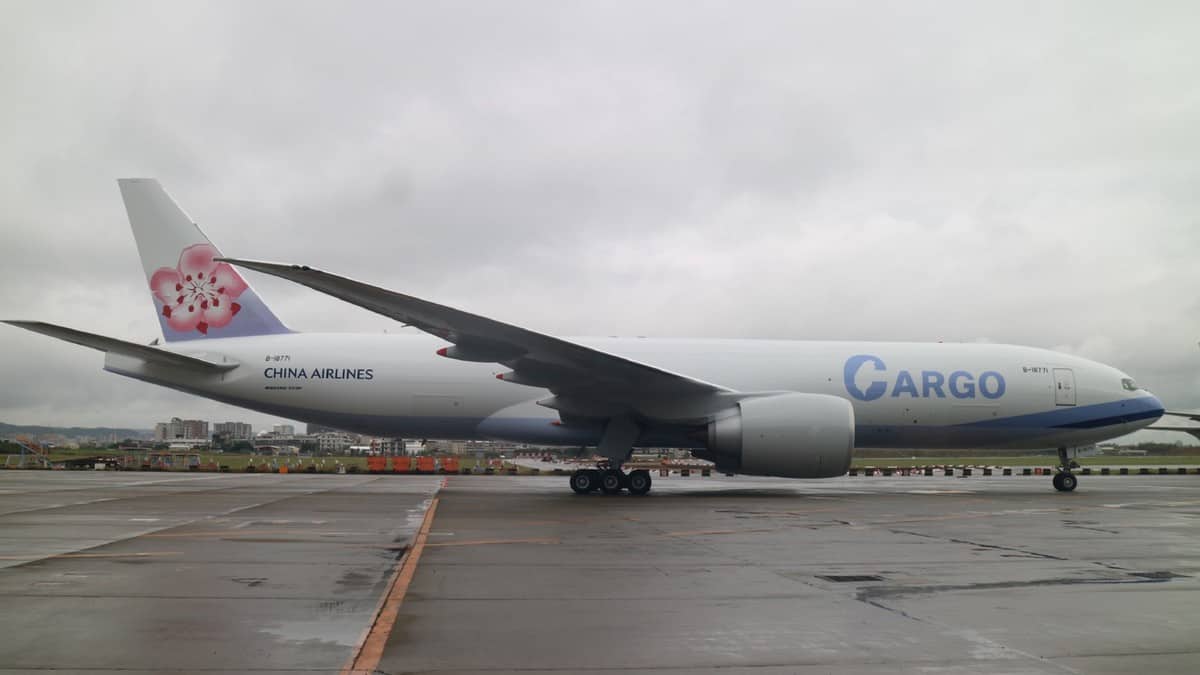A wavelet of Boeing 777 freighters entering commercial service is providing a dose of relief to shippers struggling to find capacity ever since passenger airlines closed down most international flights nine months ago due to the pandemic.
Qatar Airways and China Airlines are the latest carriers to add the 777 freighter to their fleets, as they set their sights on expansion in 2021.
Qatar Airways’ cargo division on Friday took delivery of three production 777 cargo planes built by Boeing, adding to the 21 twin-engine aircraft it already operates. Qatar Airways Cargo now has 30 all-cargo aircraft in its fleet, including two 747-8s and four Airbus A330s.
The airline, which serves more than 60 freighter destinations via its Doha hub, has also set aside six 777-300 Extended Range passenger aircraft for dedicated cargo operations, with lightweight boxes often loaded in the upper deck to increase transport amounts.
The extra planes enter the market at a time when air cargo capacity is a quarter less than last year and demand keeps growing to move e-commerce orders, perishable foods and, lately, new COVID-19 vaccines. The tight market makes it difficult for shippers to easily book shipments and doing so costs several times more than it did a year ago.
Qatar Airways is well positioned to play an important role in vaccine distribution, with a large cargo fleet and hub centered between Asia and Europe. Last month, the International Air Transport Association certified the Middle Eastern airline for excellence in safely and efficiently processing pharmaceutical and life sciences shipments according to high standards.
China Airlines is also expanding airfreight capacity in the midst of the pandemic. In mid-December, the Taiwanese carrier received its first 777 freighter from Boeing and will operate it on the busy Taipei-North America route as part of a planned 15% expansion in cargo capacity this year. China Airlines, which operates 18 Boeing 747-400 freighters, has five more of 777s in cargo configuration on order.
“Air cargo demand has risen in light of the global pandemic and has played a critical role in maintaining profitability for our airline despite the downturn in passenger traffic,” said China Airlines Chairman Hsieh Su-Chien in a statement. “The efficiency and capability of the 777 Freighter enables us to modernize our freighter fleet, while also allowing us to increase capacity and open into new markets. We look forward to delivering world-class service to our customers.”
The 777 is considered one of the most capable large cargo jets, with a range of 4,970 nautical miles, a payload of nearly 225,000 pounds and the flexibility to accept tall cargo pallets. The long range translates into fewer refueling stops, which reduces landing fees, congestion, cargo handling costs and delivery times.
Another 777 freighter came on line last month with AirBridgeCargo, the scheduled cargo airline of the Moscow-based Volga-Dnepr Group. The company said the plane is being deployed on the Trans-Siberian route.
Volga-Dnepr took delivery of its first 777 in August and spent several months getting it certified by Russian authorities.
The first flight from Seoul, South Korea, to Domodedovo Airport in Moscow, carried medical equipment for GE Healthcare.
Meanwhile, All Nippon Airways said two weeks ago that it operated a 777 freighter for the first time between Tokyo’s Narita Airport and Bangkok because of increased demand for automotive parts. Four round-trips were scheduled.
The 777 is Boeing’s top selling freighter. The airframer has delivered 200 777 freighters to 21 customers since the program’s inception in 2005.
Click here to read more FreightWaves/American Shipper stories by Eric Kulisch.
RECOMMENDED READING:
Volga-Dnepr returns first An-124 from safety suspension
Mid-size forwarder makes big charter commitment to Pittsburgh airport











